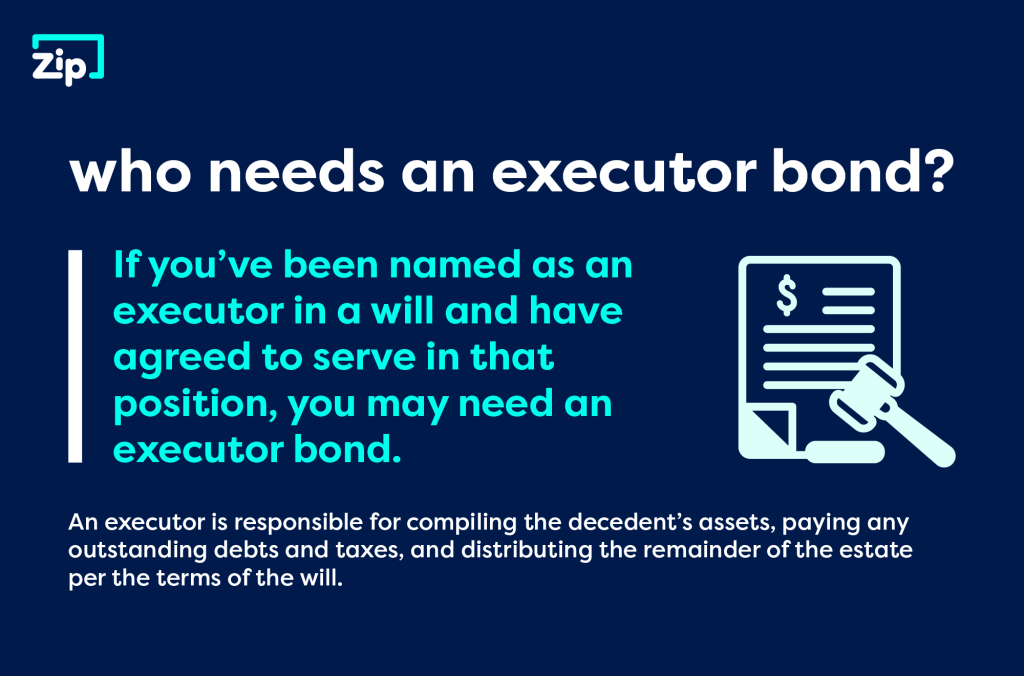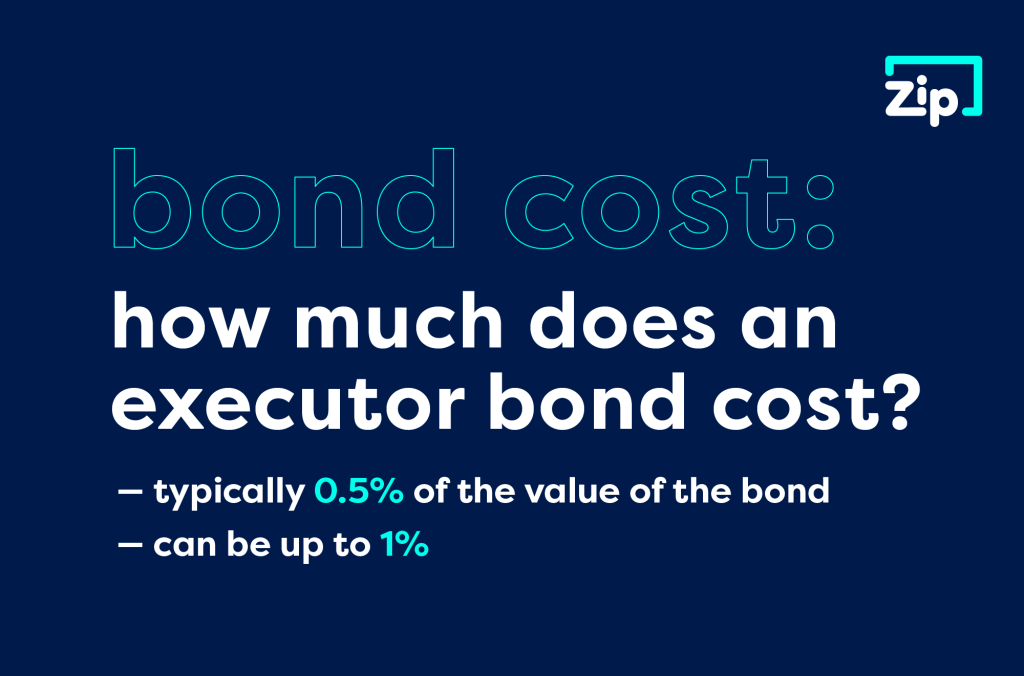Executor Bond

What is an executor bond?
An executor bond is a kind of probate bond. County courts often require these bonds for individuals handling the administration of a deceased person’s property, belongings, and debt (their “estate”).
An executor surety bond may be necessary when the deceased left a valid will and named someone to serve as their executor. If the deceased didn’t leave a will or the appointed executor can’t perform their duties, the probate court will appoint an estate administrator instead (who will need an administration bond).
An executor bond helps ensure that an individual handling the estate satisfies all the estate debts and properly distributes the remainder to the appropriate individuals or entities under the will. If the executor wrongly or negligently fails to do so, the surety bond ensures appropriate payment.
Get Your Executor Bond:
Quick Takeaways
- If a decedent names an executor in their will and does not waive the surety bond requirement, a probate court may require an executor to obtain a bond.
- An executor bond protects an estate against financial losses due to negligence or improper acts by an executor.
- An appointed executor is responsible for obtaining an executor surety bond if required, although the estate will generally reimburse the premiums.
Who needs an executor bond?
If you have been named as an executor by someone’s will and have agreed to serve in that position, you may be required to obtain an executor bond. When a decedent’s will is registered, the probate court will recognize the named executor and determine whether the terms of the will expressly waive any surety bond requirement. If the will doesn’t contain a waiver, the court will decide if the executor must obtain a bond and in what amount. This often depends on the size and complexity of the estate.
The executor is responsible for compiling the decedent’s assets, paying any outstanding debts and taxes, and distributing the remainder of the estate per the terms of the will. For very large or complex estates, this process can be lengthy and complicated. A bond protects legatees from an executor’s negligence, intentional mishandling of assets, or failure to satisfy estate liabilities.

How do these bonds work?
Executor bonds guarantee that the person tasked with distributing the assets of an estate will do so in accordance with the deceased’s wishes and applicable state and federal laws. The bond protects against financial losses to the estate due to dishonest, negligent, fraudulent, or otherwise improper acts by the covered executor.
Suppose the executor does not act under the terms of the will and the law. In that case, the decedent’s legatees (the intended beneficiaries under a will) may file a claim against the bond for financial compensation.
How much does an executor bond cost?
Courts typically require that executor bonds be issued for the value of the decedent’s estate or more. Some state laws require estate bonds to be issued for a specific set percentage of the value of the estate (Illinois, for example, requires 150%).
The cost of the bond (the “premium”) is a percentage of the total estate value. This percentage depends on the creditworthiness of the executor (based on how much risk is involved). Typically, the cost of the bond is relatively small: one-half of one percent (0.5%) of the value of the bond is a typical estimate, although rates can vary up to 1%. Bond premiums must be paid annually until the estate is disbursed and fully settled (i.e., the probate court closes the case).
Obtaining and paying for a probate bond is the executor’s responsibility. However, the bond cost will usually be reimbursed out of the estate proceeds when the final accounting is filed with and approved by the court.

Executor Surety Bond Requirements
You are legally qualified to be an estate executor if you’re:
- 18+ years of age,
- A U.S. resident,
- Not a convicted felon, and
- Not an adjudicated disabled person.
Once a will is filed in probate and the court recognizes an executor, the court determines whether they must obtain a probate bond and, if so, in what amount. If the court orders the entry of a bond, it will not permit the estate to be distributed until the executor obtains and registers an appropriate surety bond with the court.

How to Get an Executor Bond in Your State
If you’ve been appointed to be the executor of a probate estate, ZipBonds can get you the bond you need. We offer the fastest and most secure option for getting bonded. Our all-digital platform is intuitive and straightforward. Apply online or call us at 888-435-4191 to speak with an agent directly.
About ZipBonds.com
Founders Ryan Swalve and Zach Mefferd formed the vision for ZipBonds.com when they realized how overly complicated it was to help clients place surety. The frustration of being unable to incorporate the technology they’d used in other insurance-focused projects left them thinking “there has to be a better way.”
Fast forward a couple of years, and that better way is the impetus of everything we do at ZipBonds. We constantly look for innovative ways to improve the bonding process for our clients and agents. Our team comprises individuals who understand all angles of surety – for companies, agencies, and individuals. Incorporating everyone’s point of view to improve the process while simultaneously integrating cutting-edge technology is what sets our business apart.

